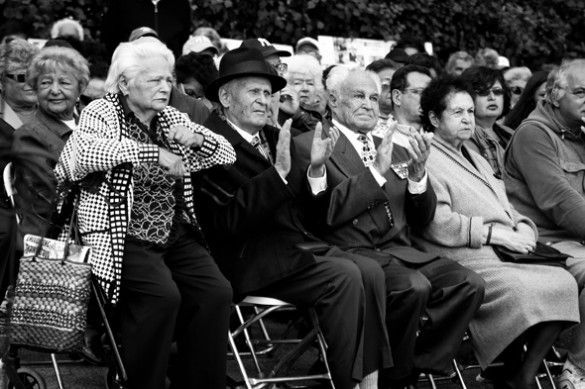Semen Domnitser, Ringleader In $57 Million Holocaust Reparations Fraud Scheme, Sentenced To Eight Years

The ringleader of a $57.3 million fraud scheme that siphoned money from of a Holocaust reparations fund was sentenced to eight years behind bars yesterday, announced United States Attorney Preet Bharara.
Semen Domnitser played a pivotal role in the scheme, prosecutors say, having worked as a caseworker and program director that processed the fraudulent applications in return for kickbacks. Domnitser gave his seal of approval to ineligible recipients, many of whom were born after World War II and at least one that was not even Jewish.
In addition to eight years in prison, Domnitser was sentenced to three years of supervised release, ordered to forfeit $59,230 and pay restitution in the amount of $57.3 million.
“As the highest ranking insider to participate in this despicable fraud against the Holocaust Claims Conference, Mr. Domnitser played an integral role in the scheme by processing fraudulent applications to the Conference and turning a profit of thousands of dollars for himself,” said Bharara in a press release. “With today’s sentence, he will be held to account for victimizing Holocaust survivors by diverting funds meant to help them to his own pocket and contributing to this $57 million scheme.”
Authorities busted the ring in November 2010, initially bringing charges against 19 alleged scammers for recruiting applicants and processing fraudulent documents for thousands of applications to the Conference on Jewish Material Claims, which doles out funds on behalf of the German government to survivors of the Nazi Holocaust.
Domnitser is believed to have signed off on more than 4,000 applications.
A home on Brighton 12th Street in Brighton Beach was believed to be the headquarters of the scam, where fake documents from the Russian government were produced, including passports and birth certificates. The forger of those documents, Dora Grande, was sentenced to two years in June. In 2011, Brighton Beach resident Polina Anoshina was sentenced to one year for her role in recruiting applicants. Others have since been sentenced as well.
The ring was operating from as early as 1994, prosecutors say. When members of the ring believed they were being investigated, they allegedly offered bribes to witnesses to prevent them from cooperating.
The scheme involved two funds operated by the Holocaust Claims Conference: the Hardship Fund and the Article 2 Fund.
The Hardship Fund provides one-time payment of $3,500 to victims of Nazi persecution who relocated and became refugees. At least 3,839 fraudulent Hardship Fund applications were processed, costing $12.3 million in losses.
The Article 2 Fund makes monthly payments of $400 to survivors of Nazi persecution who make less than $16,000 a year and were forced to live in hiding, in a Jewish ghetto or in a Nazi forced labor camp. Fraudsters doctored documents to change the applicants’ place and date of birth, as well as documents designed to verify their persecution. At least 1,112 false applicants were approved, resulting in a loss of $45 million.
Domnitser worked as a caseworker with both funds from 1994 to 1999, when he was promoted to director of the funds until his termination a few months before the bust, giving him the necessary clout to push along the applications.
So far, 31 individuals have been charged, and 28 have pleaded guilty. Three, including Domnitser, were convicted after a trial.




